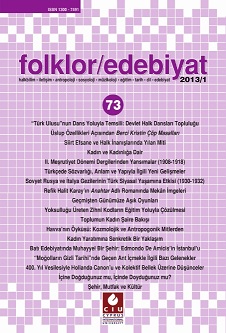Yoksulluğu Üreten Zihnî Kodların Eğitim Yoluyla Çözülmesi
Resolution of Mental Code that Produce Poverty through Education
Author(s): Mustafa GündüzSubject(s): Culture and social structure , School education, Social development, Social differentiation, Sociology of Education
Published by: Uluslararası Kıbrıs Üniversitesi
Keywords: Education and poverty; poverty culture; traditionally and religionaly proverbs and idioms that produce poverty;
Summary/Abstract: There have been different element that produced and being continuously ‘poverty culture’ or ‘social poverty’. While struggling with poverty, these elements must have be known. One of the reason of produced poverty is mental codes in human conscious that being proverbes and idioms from religion and negative tradition. These codes have been transferred from generation to generation by family, education and culture. S. Ülgener researched about these codes in his books. Many codes of them were value of traditional society of medievial. Some of the proverbs and idioms like “If it is not flow, it is drips”, “many prooerty isn’t be illicit”, “the man who dosn’t confine oneself to little, he can’t find much”, “more haste more waste” ect. Don’t coherend the modern life and economic values. But these mental codes paradoxcialy have live in our life. These mental codes transferred to new member of society by culture, education and family. This has blocked to bring up entrepreneur personal in society. To able to rescue from this mental codes that produce powerty must be make conscious education. For this, education program must be change, lesson book must be prepared anew, every educator must be effectly and abundantyl strugle for the poerty by different education actions. In this paper, to wipe mental codes that produce poverty from socially mind and to set contemporary values on traditional codes place and struggle for poverty by education and its methods will be discussed.
Journal: Folklor/Edebiyat
- Issue Year: 19/2013
- Issue No: 73
- Page Range: 163-176
- Page Count: 14
- Language: Turkish

